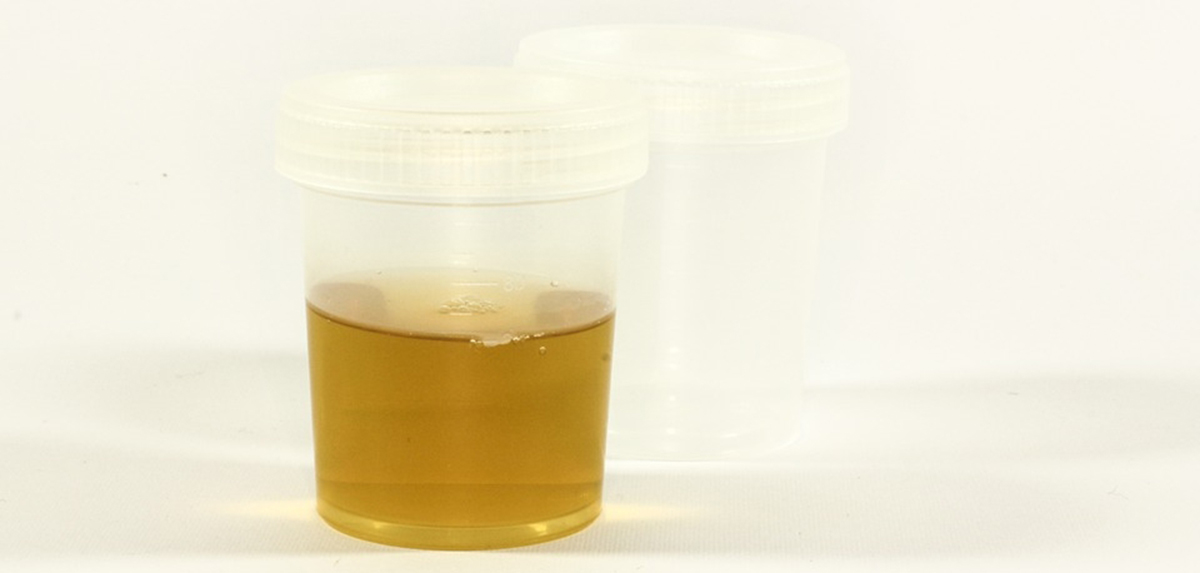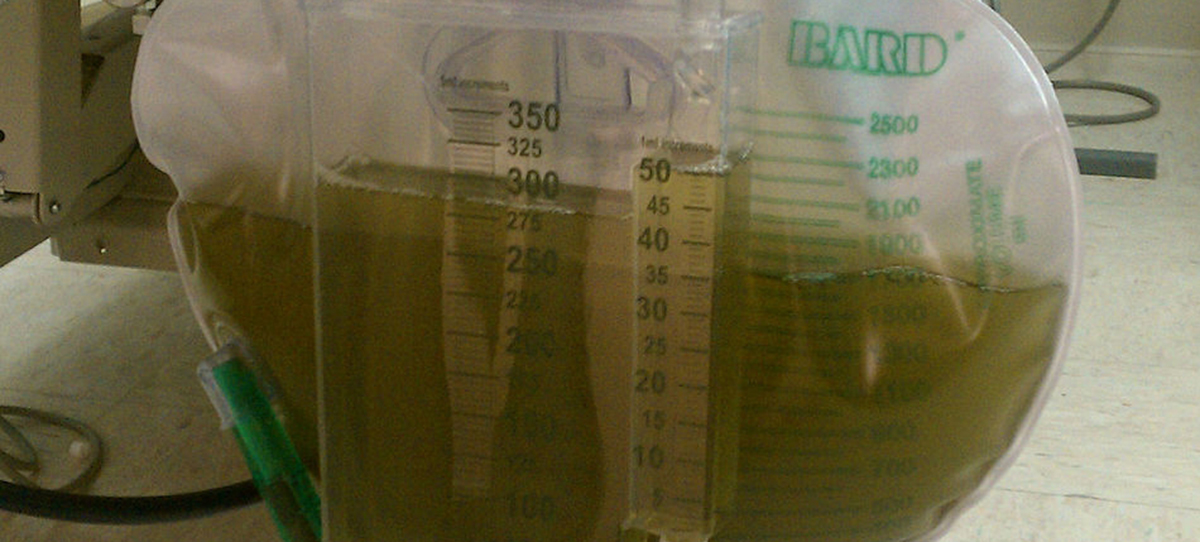Have you noticed exceptionally dark and strangely colored urine? While most folks don't normally give much thought to their urine color, abnormal colors can certainly give you a fright. Don't panic right away, though, as abnormal urine color is usually the result of something totally benign — foods, food dyes, and medications are the main culprits.
It is good that your strange shade of pee caught your attention, however, because in some cases, the color of your urine can give you important insights into the state of your overall health and wellbeing.
What Is Dark Urine?
Normal urine should range from a very pale yellow to a slightly more intense pale yellow. Anything other than that, whether completely clear urine or a darker shade, should give you pause and lead to you investigate what could be going on. What exactly constitutes "dark urine"? If you came here looking for more information about the color of your pee, you could be dealing with the deep amber that tends to signify dehydration, or you might have brown or even nearly black urine.

Here, we will look at the most common causes of dark, black, and brown urine.
Dehydration: Dark Yellow Or Orange Urine
Dehydration, which can be defined as more fluids leaving the body than entering it, can be caused by insufficient fluid intake, or by the rapid loss of fluids due to conditions like diarrhea or skin injuries. When you are dehydrated, your urine becomes more concentrated, and with that, also darker. You are usually talking about a deep yellow or orange color, here, but some people may also interpret dark urine caused by dehydration as being brown.
If you're mildly dehydrated simply because you have forgotten to drink enough water, that's easily remedied. Serious dehydration, which can be accompanied by a whole range of symptoms, from a swollen tongue to heart palpitations and from fainting to seizures, can quickly become life-threatening, however, and requires immediate medical attention.
Foods: Brown Or Pink Urine
Have you been eating lots of fava beans, rhubarb, aloe, or beets? The dark brown urine that can result will look terrifying, but if you stop consuming the offending foods, your pee will soon return to normal. The sugar-replacement product Sorbitol, and beta carotene and vitamin B supplements, can likewise lead to a dark brown urine color.
Medication: Orange And Brown Urine
A number of different medications are known to lead to dark orange or brown urine. They include:
- The malaria drugs chloroquine and primaquine
- Antibiotics including metronidazole
- The central muscle relaxant methocarbamol
- Synthetic forms of somatostatine, a growth-hormone inhibitor
- Laxatives that contain the herb Senna
Completely black urine is certainly among the scariest possible colors you can end up with, but sometimes what you see isn't what you get — the hypertension drug Methyldopa has components that can turn your pee black upon contact with bleach, which, of course, is found in many a toilet bowl!
Dark Urine As The Result Of Serious Medical Conditions
Dark Urine Because Of Liver Dysfunction
Persistent dark urine — whether it's orange, light brown, or Coca-Cola colored — can indicate liver disease, such as hepatitis, liver cancer, cirrhosis, and alcoholic liver disease. In this case, the darker color is caused by an excess of bilirubin, a pigment created during the liver's process of breaking red blood cells down. Liver disease, unfortunately, tends to become symptomatic only during more advanced stages, but the earlier you catch it, the earlier you will be able to seek treatment and the more favorable the outcome is likely to be.
Other tell-tale symptoms include a yellowing of the skin and eyes, and pale stools, along with fatigue, loss of appetite, an enlarged abdomen, nausea, and being more prone to bleeding and bruising.

Rhabdomyolys: Brown Urine
Rhabdomyolys, a condition that leads to the rapid breakdown of skeletal muscle, causes a characteristic dark-beer-like urine color. The urine of rhabdomyolys patients will test positive for blood, but microscopic analysis will demonstrate that no red blood cells are present.
While rhabdomyolys is a fairly rare condition, with around 26,000 people affected in the United States annually, it has many different underlying causes. They include hereditary muscle conditions, drug and alcohol abuse or long-term use of certain medications (notably Haloperidol), crush injuries, uncontrolled diabetes, snake bites, and Legionnaire's Disease.
While severe rhabdomyolys is accompanied by muscle pain and weakness and a range of other resulting symptoms, patients will often lack clear symptoms while the condition is mild. Dark brown urine may, therefore, be the first thing that alerts you that something is wrong, demonstrating that observing your urine color is more than worthwhile.
Gallbladder Problems: Dark Orange To Brown Urine
Cholecystitis, an inflammation of the gallbladder typically resulting when a gallstone blocks the cystic duct, can be acute or chronic. While the jaundice that cholecystitis causes will lead to a dark urine color, this won't be the first thing to alert you that something is wrong: cholecystitis starts with pain, pain that can become excruciating. Nausea and vomiting are also common.
Other Causes Of Dark Urine
Glomerulonephritis (kidney diseases), pancreatic cancer, pancreatitis, malaria, sickle cell disease, porphyria, and hemolytic anemia can also all lead to dark urine. With so many possible causes, not all of which come with clear and distinct symptoms, the message is clear — if you notice dark, brown, or nearly black urine once or twice and are quite certain that it was caused by foods, supplements, or dehydration, you can skip seeing a doctor. If the problem persists, however, you may be dealing with a serious medical condition. In nearly all cases, early diagnosis will lead to early treatment and, therewith, a more favorable prognosis.
Urine color may not be something we normally pay nearly enough attention to, but as you can see, it can play a key role in alerting you that something is wrong, allowing you to seek medical attention and getting the treatment that you need.
- Photo courtesy of frolicsomepl by Pixabay: pixabay.com/en/the-test-urine-container-urine-1006794/
- Photo courtesy of Rmosler2100 by Wikimedia Commons: commons.wikimedia.org/wiki/File:IMAG0466.jpg


Your thoughts on this